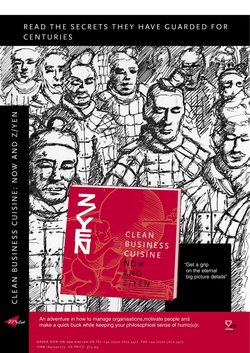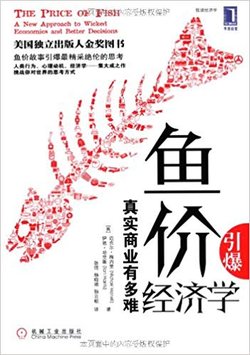Learn Chinese In An Afternoon
[An edited version of this article first appeared as “How To Learn…Chinese…In An Afternoon”, Professor Michael Mainelli ( 麦(mài)迈(mài)克(kè)), The Linguist, Volume 47, Number 3, page 20, Chartered Institute Of Linguists (June/July 2008)]
1) Foreign Languages

As an English speaker foreign languages are Greek to you, so you might as well learn Greek and get all languages out of the way in one go. Unfortunately, the reality is that foreign languages are Gibberish to you, and Gibberish is frightfully hard to learn. When Greeks talk about Gibberish they say, “εἶναι γιὰ μένα κινέζικα” - “íne gia ména kinézika” - “it’s Chinese to me". So why not learn Chinese?
2) Choosing Mandarin
Since Cantonese speakers say 呢啲喺雞腸呀– “li di hai gai cheung a” – “these are chicken intestines” to our lovely Latin Alphabet, why not look further north where Mandarin speakers call Gibberish 听起来像鸟语 – “tīng qĭ lái xiàng niăo yǚ” - “sounds of the birds” or 跟天书一样– “gēn tiānshū yíyàng” - “like heavenly script”. Given heavenly avian chit-chat or poultry gizzards, Mandarin looks like a good compromise between Greek and Gibberish.
3) Comparative Overview
Mandarin is an ancient and venerable language a few millennia older than English, therefore it’s had more time to smooth out the rough bits. Along the way Mandarin has discarded such useless baggage as gender, case, number, tense, person, mood and voice. By comparison, Greek can have up to three genders, five cases, three numbers, seven tenses, three persons, five moods and three voices. If Greek takes the afternoons of a lifetime, then Chinese can obviously be learned in one.
4) Pronunciation
Easy. You’ve probably heard that Chinese is a tonal language, so it’s a good thing you chose Mandarin’s five tones instead of Cantonese’s eight, or Italian’s 472. All languages have tones, so just pay particular attention to your pronunciation, say the words perfectly and you’ll have no problems.
5) Basic Grammar
Rather tough. Each sentence has a subject followed by verb and object. Take the phrase – “John has roast duck” – “John 有烤鸭” - “John yǒu (has) kǎoyā (roast duck)”. Tough, eh?
6) Vocabulary, Reading & Writing
English is frightfully rich, with 17,000 word families and about 40,000 specific words. You know some 26 characters, recognise 3,000 words in writing without thinking, and can sound out the remaining 37,000. Of course Chinese has smoothed this rough bit too; there is no alphabet; no need to sound things out. Just learn the character for each word, 汉字 - ‘hànzì’. Please do memorize the 3,000 most common 汉字 and a few other combinations to attain a rich vocabulary of about 17,000 words, or this course will take all afternoon.
7) Intermediate Grammar
Hard. “John has a roast duck”, “Johns have the roast ducks”, or “Roast ducks are had by John” – all the same, no room for deviation.
8) Advanced Grammar
Easy. Learn five particles, ma, ba, guo, le and la, and situate them at the end of sentences, except for guo which must appear after the verb (well, this is advanced grammar):
- guo, ‘once’ particle – “John has, once, roast duck” – “John 有过烤鸭” – “John yǒu guo kǎoyā”;
- ba, Estuarian English ‘innit’ particle – “John has roast duck, innit?” (Standard English, “shall John have roast duck?”) – “John 有烤鸭吧?” – “John yǒu kǎoyā ba?”;
- ma, polite ‘yes/no’ question particle – “John has roast duck, yes/no?” - “John 有烤鸭吗?”– “John yǒu kǎoyā ma?”;
- le, ‘dunnit’ (achieved-the-state-of, past tense) particle – “John has roast duck, dunnit” – “John 有烤鸭了” – “John yǒu kǎoyā le”;
- la, ‘just joking’ particle – “John, the idiot, has roast duck, just joking” – “John 很白痴 有烤鸭,啦” – “John hěn báichī yǒu kǎoyā, la”.
9) Graduation Dialogue – Restaurant Scene
[Chinese restaurant owner C; English speaking guest E]
[Greeting]
Guo
C (“Have you ever had our roast duck, Sir?”): “You have roast duck.” (blast, where’s the English “guo” thingy).
E: “Well, I might, but let me read the blasted menu.
[Ready to order]
Ba
C (“Shall Sir have roast duck?”): “You have roast duck.” (blast, where’s the English “ba” thingy).
E: “Are you trying to force this duck down my throat? All right, one roast duck.”
[C brings roast duck to E]
Ma
C (“Did you have the roast duck, Sir?”): “You have roast duck?” (blast, where’s the English “ma” thingy).
E: “Yes, though I’m tempted to roast something else.”
[C brings bill]
Le
C (“Sir had the roast duck, n’est-ce-pas?”): “You have roast duck.” (blast, where’s the English “le” thingy).
E: “Yes I did, in the rudest restaurant I’ve ever visited!”
[After many awkward years, the proprietor offers a complimentary drink to his loyal customer]
La
C, bringing the bill and free drink: “You have drink, yes/no?”
E: “No, and I’m not paying for it either!”
C: “I say please you have free drink.”
E: “Gosh, that’s rather kind.”
C, sitting next to E (“You know, you’re my rudest customer, just joking!”): “You rudest customer I have!” (blast, where’s the English “la” thingy)
E, leaving bill behind: “That’s it! I’m out of here...”
10) Congratulations!
Although you are now pre-occupied memorising a few thousand Chinese words, their pronunciation and their 汉字, do purchase your certificate of Achievement In Chinese As A Lingua Franca d’Apres Midi and practise your new-found skills confidently. For as they say in China – 初生之犊不畏虎 – “chū shēng zhī dú bú wèi hǔ” – “a new-born calf fears no tiger”.
Thanks
My thanks to Elisabeth Mainelli, Tim Connell, Robert Pay, Dimitris Fatouros, Mark Duff, and Richard Poulden who all helped me develop this, but most especially to Shaomin Lee, 我的老师 – “wǒ de lǎoshī” – “my teacher”, for his instruction and 很好的幽默感 - hěn hǎo de yōumò gǎn - very good sense of humour.
And we got a letter!
Dear Sir,
Michael Mainelli's light-hearted look at Chinese (TL 47,3) will puzzle those of us who are trying to learn the language, and taking rather more than one afternoon over it. Modern standard Chinese (Mandarin) has four tones, not five. All languages have intonation: not all have tones, as in Chinese.
The writing-system is indeed not alphabetical, but when Mainelli writes that there is "no need to sound things out", I suspect that he subscribes to the ideographic fallacy, ie that the characters convey meaning independently of the words (and the sounds) that the characters are used to write. This is a very old misconception going back to the 16th-century Jesuit missionaries to China, also to Bacon and other 17th-century thinkers who thought they had discovered a universal writing system. It was exploded by John De Francis (among others) in his The Chinese language: Fact and Fantasy (1984, University of Hawaii Press).
Charles Rudd ACIL
And, ever grateful for an attentive reader, we replied:
Dear Sir,
As Mr Rudd notes, I meant the article to be light-hearted fun that might provoke interest in learning Chinese, while the editor meant the article to be excruciatingly brief. Tone counts are an interesting problem, much discussed among native speakers too. One frequent problem is whether to count the `base' or `neutral' tone, which gives Mandarin five tones, or not, which results in a count of four tones. The `sounding out' joke was meant as such and, as a fellow student, I certainly couldn't subscribe to the ideographic fallacy. It is good of Mr Rudd to point out this common misconception. I would draw your readers' attention equally to Arthur Cooper's excellent 1978 monograph, "Creation of the Chinese Script", as another good explanation of the complex evolution of Chinese writing for those who are interested in learning more.
Michael Mainelli

Of course, you can always try your new language out with our advanced text in Chinese (Chinese press release), on sale at Amazon.cn, click here:
The Price Of Fish: A New Approach To Wicked Economics And Better Decisions, Michael Mainelli and Ian Harris, Nicholas Brealey Publishing, 2011 - Amazon.co.uk, click here or Amazon.com, click here:
or learn how Chinese business theory from 500 BC is still applied today:
Clean Business Cuisine: Now and Z/Yen, Michael Mainelli and Ian Harris, Milet Publishing, 2000 - http://www.zyen.com/publications/books.html?id=551 - Kindle
